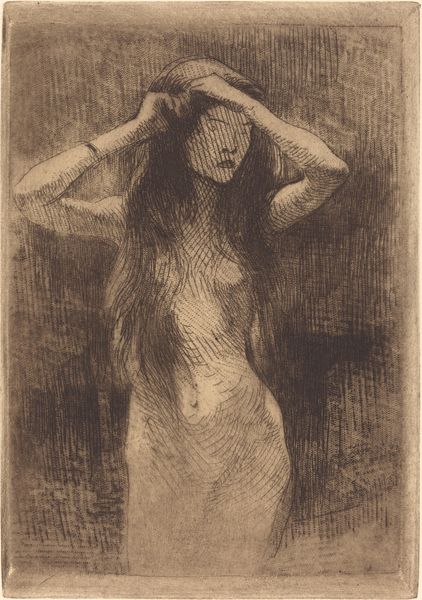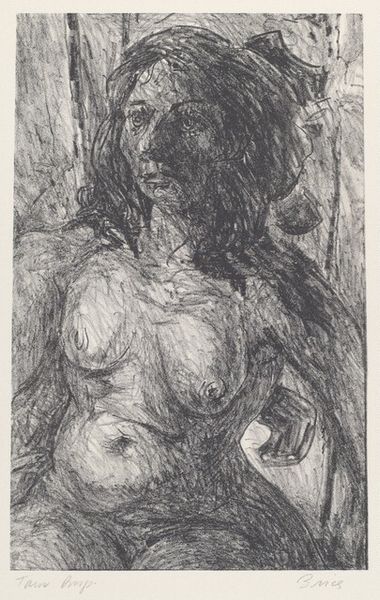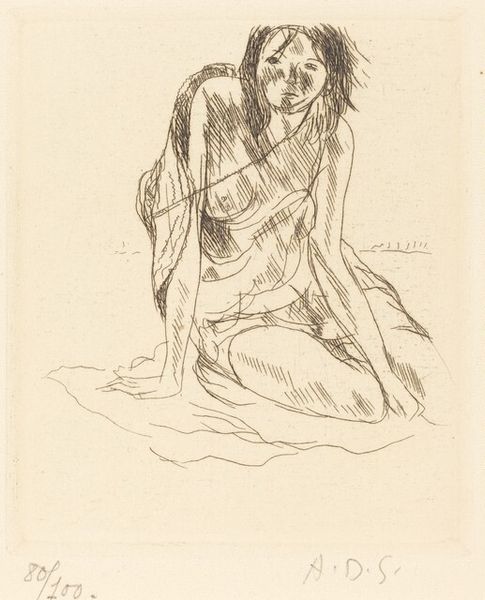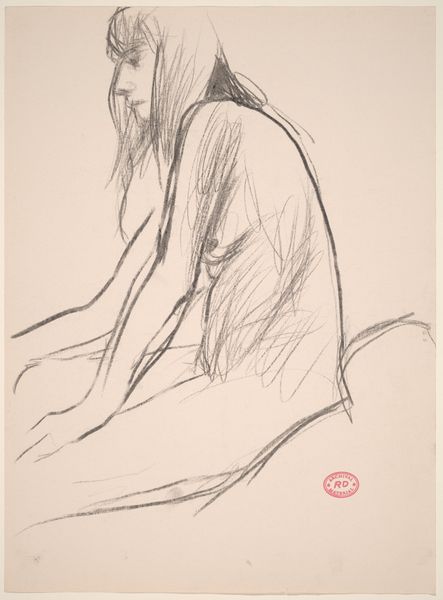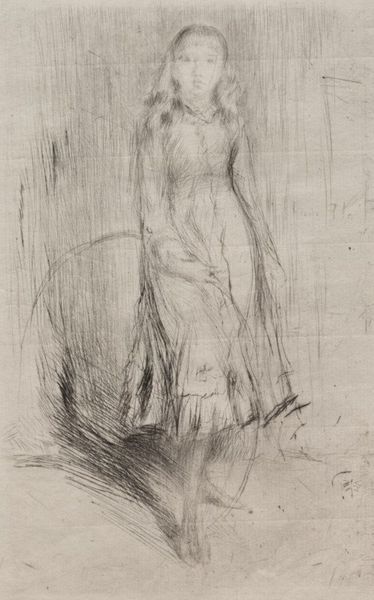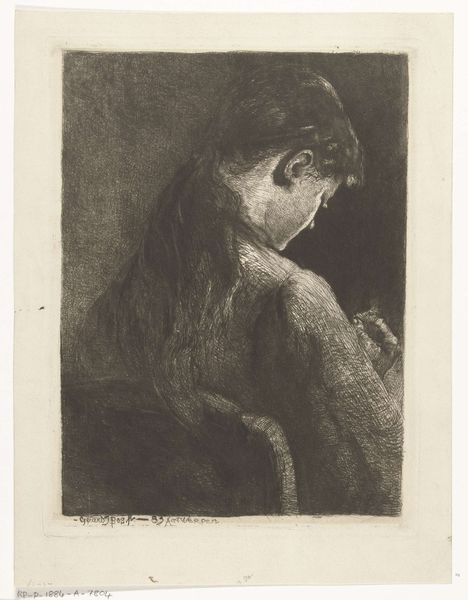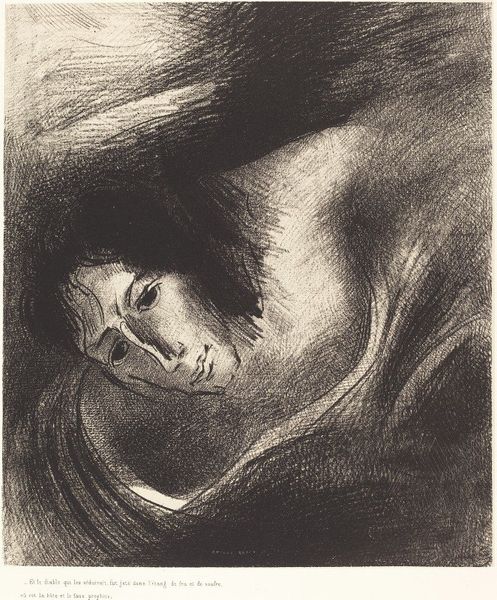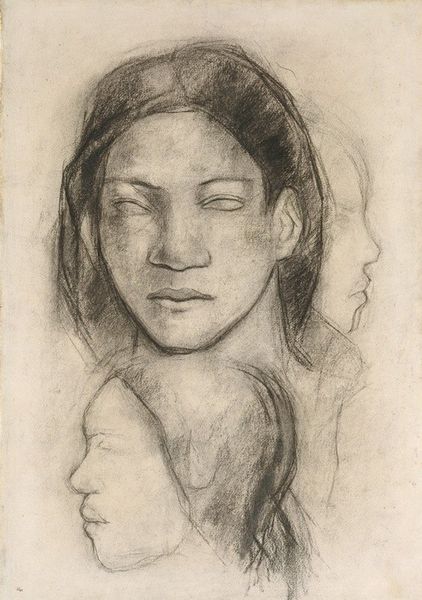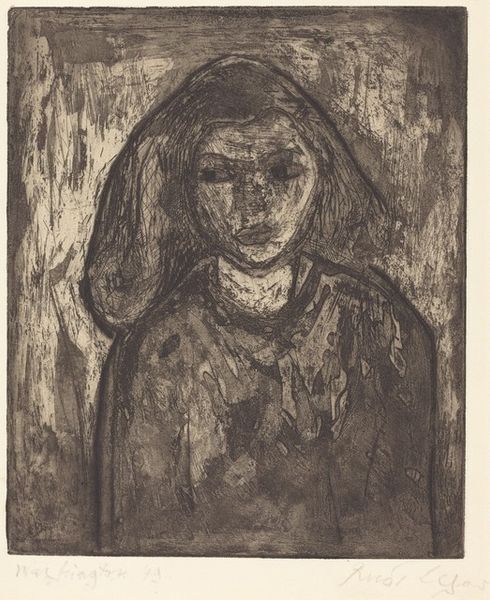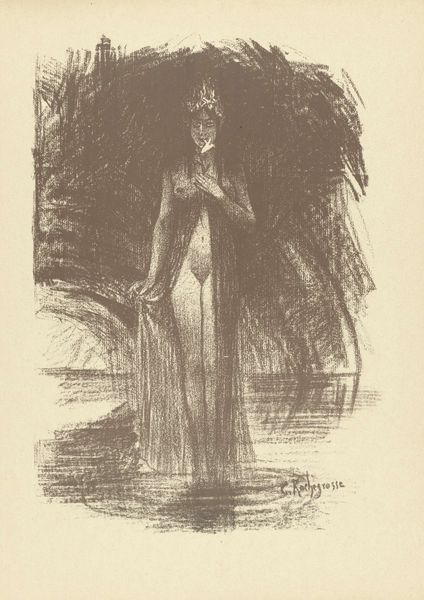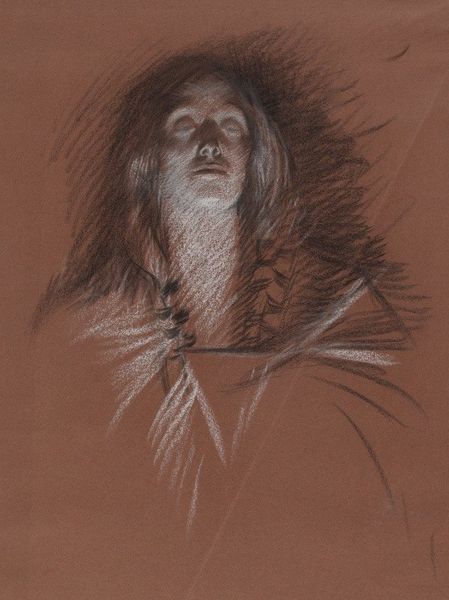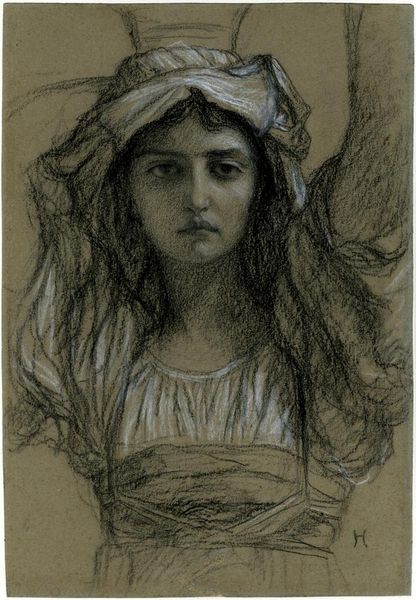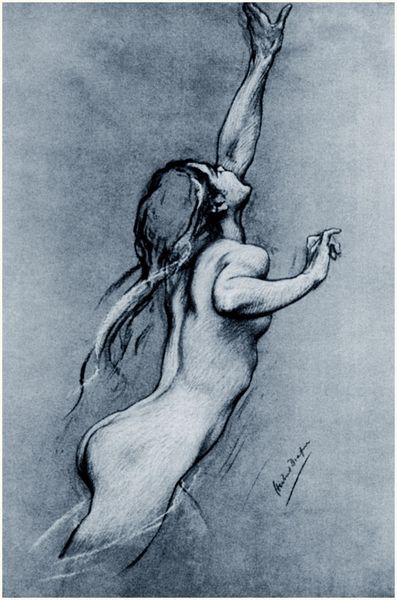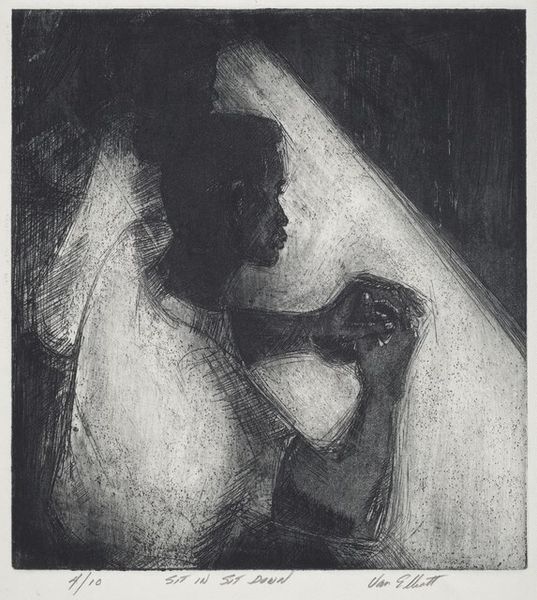
drawing, dry-media, charcoal
#
portrait
#
drawing
#
allegories
#
landscape
#
figuration
#
dry-media
#
pencil drawing
#
line
#
symbolism
#
charcoal
#
post-impressionism
Dimensions: 30.6 x 21.4 cm
Copyright: Public domain
Curator: "Intelligence was mine! I became the Buddha!" This charcoal and pencil drawing by Odilon Redon, completed in 1896, presents us with a compellingly strange figuration. Editor: It certainly does. The first thing that strikes me is the stark contrast and ethereal quality. The figure seems to emerge from the darkness with very defined outlines. Curator: Redon was deeply engaged with symbolism, using his art to explore the psychological and spiritual realms. We need to consider his philosophical influences. Remember he engaged significantly with ideas around Eastern thought. Editor: The composition is masterful in the way the subject confronts us so directly. Her intense gaze dominates the image and demands our attention. Look at the hatching, the smudging, the overall contrast creating luminosity... the application technique alone brings it to life. Curator: I see it as a powerful commentary on female identity and spiritual awakening, set against the backdrop of 19th-century gender roles and intellectual life. Redon often depicted women in unconventional ways, exploring their inner strength and mystical connections, defying the expectations placed on women at that time. Editor: Perhaps. But look again. I read that face as quite unsettling. Are you so sure the luminosity, that "awakening" you suggest, is not rather… aggressive, forceful even? What of that stark composition lending to the overall image such an oppressive effect? Curator: It’s that very ambiguity, that unsettling feeling, that makes Redon so relevant today. His work pushes us to confront uncomfortable truths and challenge dominant narratives. He was working during a period of intense colonial expansion and the construction of race within western society. What does it mean for Redon to suggest "Intelligence was mine! I became Buddha!", against a rising tide of orientalism? Editor: It may. Yet irrespective of Redon's intentions, the work invites a focused look at artistic form—a balance of line and shadow, an evocation of dreamscapes via stark, immediate visual means. It speaks directly and unapologetically via its inherent language of art. Curator: I suppose Redon offers no easy answers. But rather opens up avenues for continuous interrogation. Editor: True, that's perhaps where its enduring power lies, indeed.
Comments
No comments
Be the first to comment and join the conversation on the ultimate creative platform.
